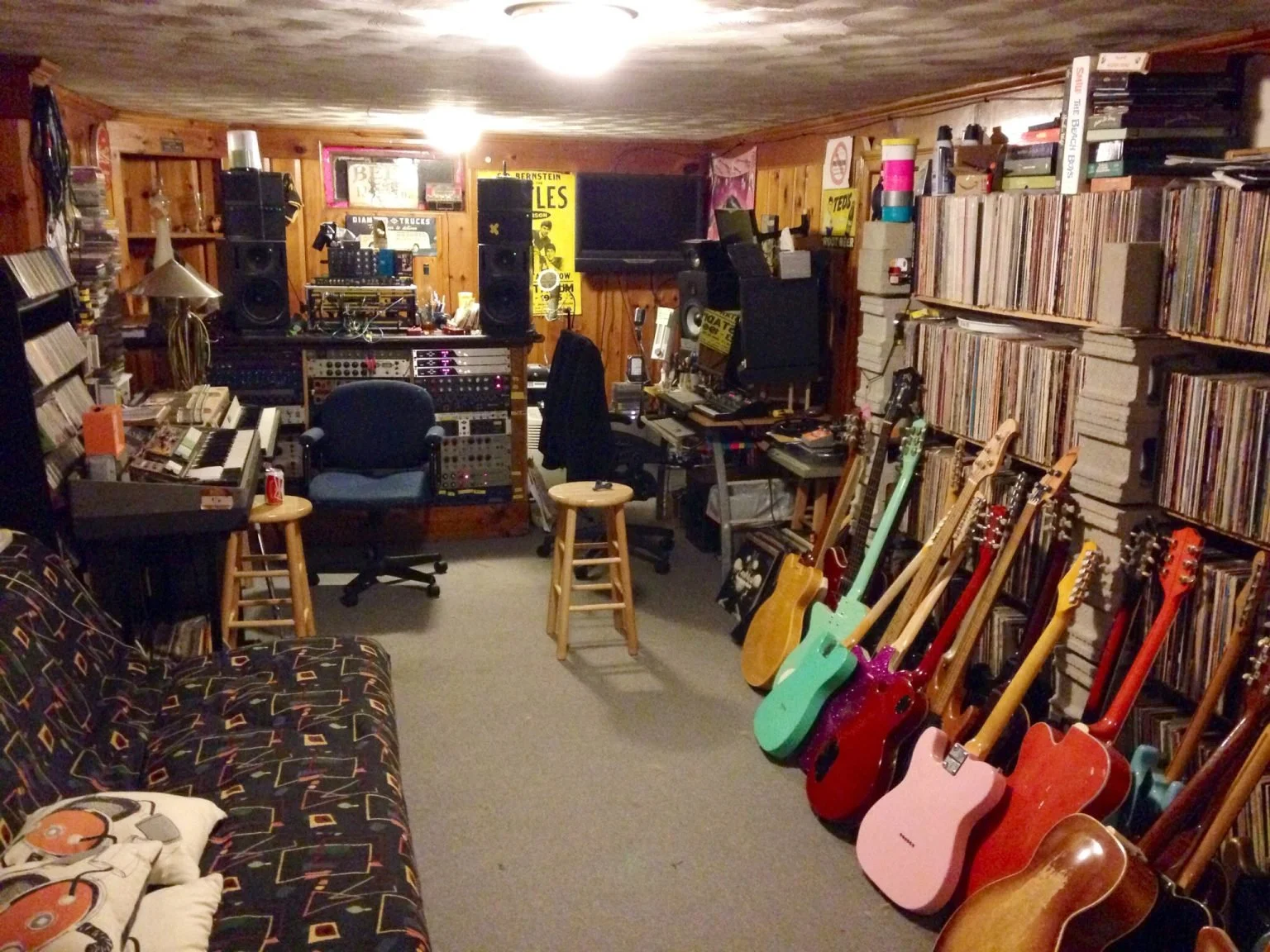HOMAGE TO Brother Cleve
Brother Cleve was a friend, mentor, and our guide through mid-century pop culture. Quite the incredible musician, DJ, record producer, mixologist, historian of the unusual, and otherworldly!
BC spent thousands of hours with WAITIKI, while we recorded, mixed, mastered, and released projects from 2005-2020. He supervised many of our sessions and pulled back the curtain to educate us on the engineering techniques of mid century lounge. He was a perfectionist, and he drew on his experiences with Combustible Edison and Juan Garcia Esquivel to help us develop our sound.
From 2005-2007, we transcribed, performed, recorded, and toured with our 25-piece “Orchestrotica,” focusing on Esquivel’s space-age bachelor pad compositions. Because Cleve and his wife Diane Dodge had traveled to Mexico during Esquivel’s twilight years—getting to know him personally and producing some of his last records—we learned a lot from Cleve about Esquivel’s style, workmanship, and performance practice.
The “Orchestrotica” project was very intensive, and after we returned from performing at the Festival de Mexico, we settled back into studying Exotica music. During this next period, and through Cleve, we met a cadre of other lounge music fanatics, all best known by their monikers—The Millionaire, Miss Lily Banquette, Laughing Boy, Ducky Carlisle, and Tabuzak. Although their names were wondrous and curious to us, we came to deeply respect them for their knowledge of and passion for Exotica music. In fact, the first three of them were known for their lounge revival act, Combustible Edison, which started in Rhode Island in the mid-90s.







Combustible Edison had petered out by the time that we came on the scene, and thankfully their fans hadn’t lost interest in lounge or Exotica by then. Although The Millionaire had moved out west to Los Angeles, Cleve and Laughing Boy were still friends. Laughing Boy was a phenomenal jazz drummer who played frequently with guitarist Mike Stern, and he became a member of Waitiki when Abe moved back to Honolulu after graduating from Berklee.
Cleve adapted Combustible Edison’s top tunes for Waitiki, which we performed (with The Millionaire) when we went out to Los Angeles. Weird and wacky, songs like “The Veldt,” “Tiki Wonder Hour,” “The Millionaire’s Holiday,” “Breakfast at Denny’s,” and “Vertigogo” (from the Motion Picture Soundtrack to Quintin Tarantino’s Four Rooms) joined our repertoire, thanks to Cleve.
Later on, we learned more of Cleve’s acute and unparalleled sensibilities for stereophonic sound. You can hear this most noticeably on our first Waitiki 7 album, Adventures in Paradise: what gorgeous sounds! As our Producer, Cleve would supervise mixing and also mastering. He had golden relationships with the best mix engineers and mastering houses in Boston, then would travel with our masters over to the record pressing plants to oversee our lacquers. Then, over cocktails (except while he had TB and quit drinking) we would check out the test pressings to ensure all was right!.
Cleve revisited several tracks in preparation for the release of our second LP, “WAITIKI in Hi-Fi,” and specially mixed them for the vinyl experience. Cleve worked with our mutual friend and executive producer the talented Jack Fetterman, and together they created an extraordinary album that ended up on ALARM’s Top 10 Vinyl Albums of 2011.
Ducky Carlisle, in particular, was a terrific collaborator to us and Brother Cleve. We recorded our first two projects at his home studio, affectionately named Ice Station Zebra (after the 1968 spy film starring Rock Hudson). Ducky was a five-time GRAMMY winner for audio engineering, having worked on albums for Susan Tedeschi, Mandy Moore, and Norah Jones, among others. We later mixed several other projects there—including our cover of Sun Ra’s “Somebody Else’s World,” which was released by Modern Harmonic in 2019. Together, they were quite the audio guru duo.



